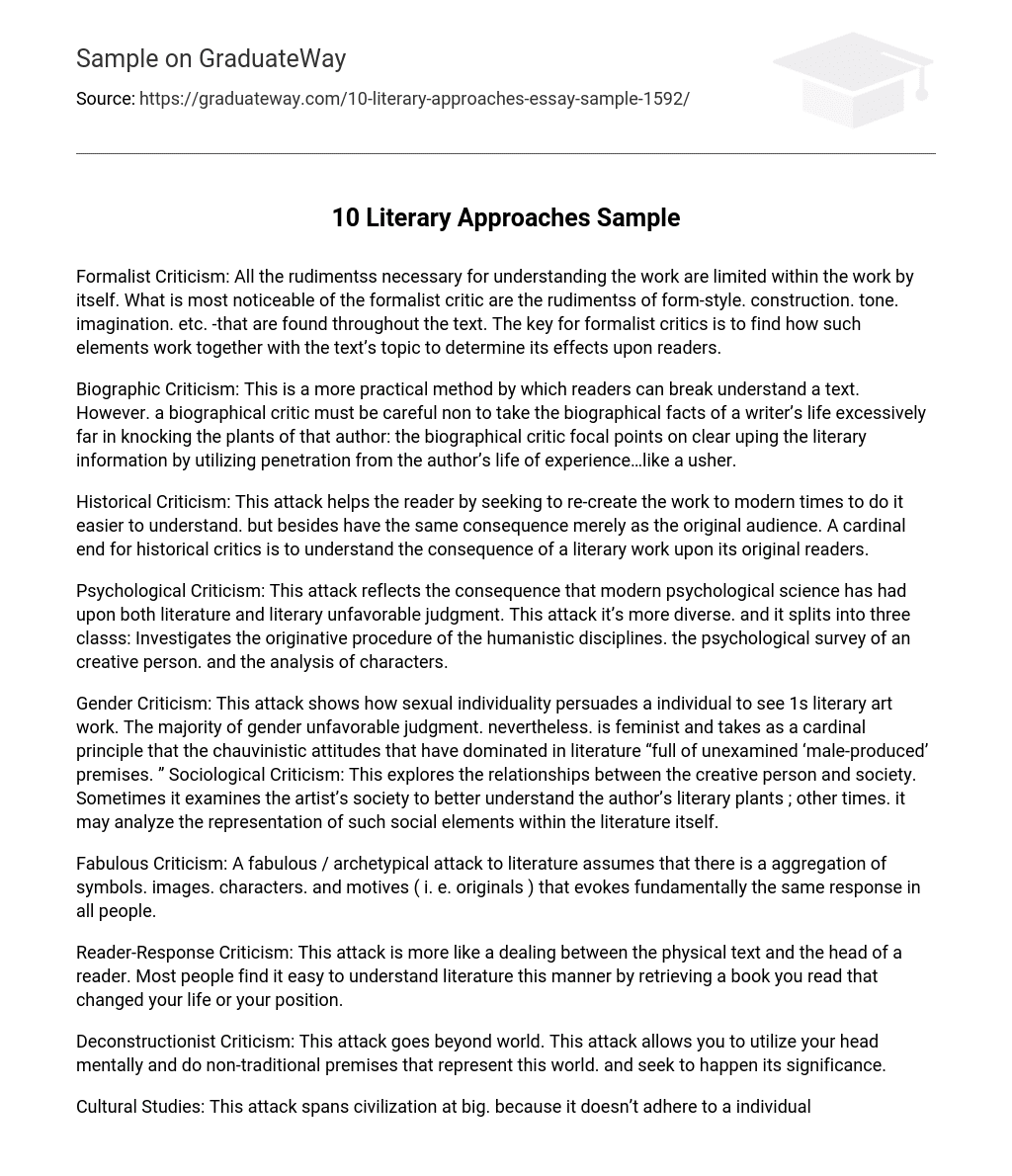Formalist Criticism: All the rudimentss necessary for understanding the work are limited within the work by itself. What is most noticeable of the formalist critic are the rudimentss of form-style. construction. tone. imagination. etc. -that are found throughout the text. The key for formalist critics is to find how such elements work together with the text’s topic to determine its effects upon readers.
Biographic Criticism: This is a more practical method by which readers can break understand a text. However. a biographical critic must be careful non to take the biographical facts of a writer’s life excessively far in knocking the plants of that author: the biographical critic focal points on clear uping the literary information by utilizing penetration from the author’s life of experience…like a usher.
Historical Criticism: This attack helps the reader by seeking to re-create the work to modern times to do it easier to understand. but besides have the same consequence merely as the original audience. A cardinal end for historical critics is to understand the consequence of a literary work upon its original readers.
Psychological Criticism: This attack reflects the consequence that modern psychological science has had upon both literature and literary unfavorable judgment. This attack it’s more diverse. and it splits into three classs: Investigates the originative procedure of the humanistic disciplines. the psychological survey of an creative person. and the analysis of characters.
Gender Criticism: This attack shows how sexual individuality persuades a individual to see 1s literary art work. The majority of gender unfavorable judgment. nevertheless. is feminist and takes as a cardinal principle that the chauvinistic attitudes that have dominated in literature “full of unexamined ‘male-produced’ premises. ” Sociological Criticism: This explores the relationships between the creative person and society. Sometimes it examines the artist’s society to better understand the author’s literary plants ; other times. it may analyze the representation of such social elements within the literature itself.
Fabulous Criticism: A fabulous / archetypical attack to literature assumes that there is a aggregation of symbols. images. characters. and motives ( i. e. originals ) that evokes fundamentally the same response in all people.
Reader-Response Criticism: This attack is more like a dealing between the physical text and the head of a reader. Most people find it easy to understand literature this manner by retrieving a book you read that changed your life or your position.
Deconstructionist Criticism: This attack goes beyond world. This attack allows you to utilize your head mentally and do non-traditional premises that represent this world. and seek to happen its significance.
Cultural Studies: This attack spans civilization at big. because it doesn’t adhere to a individual manner of understanding or analysing literary work. It portions other attacks to analyse a wide scope of cultural patterns.





